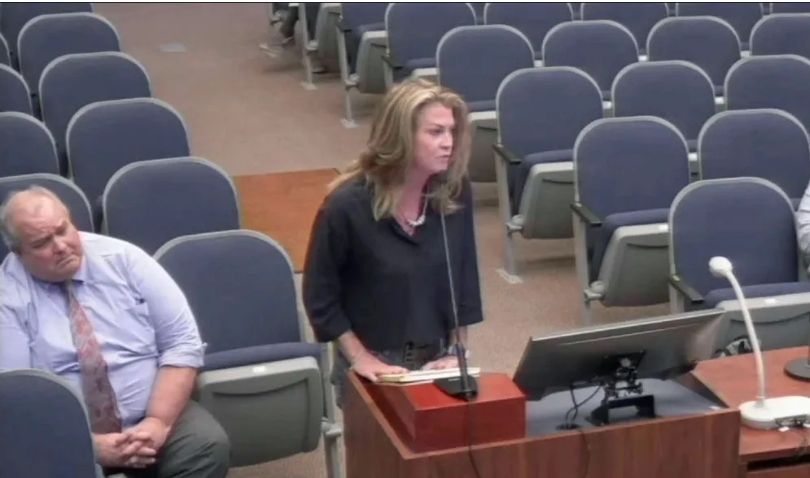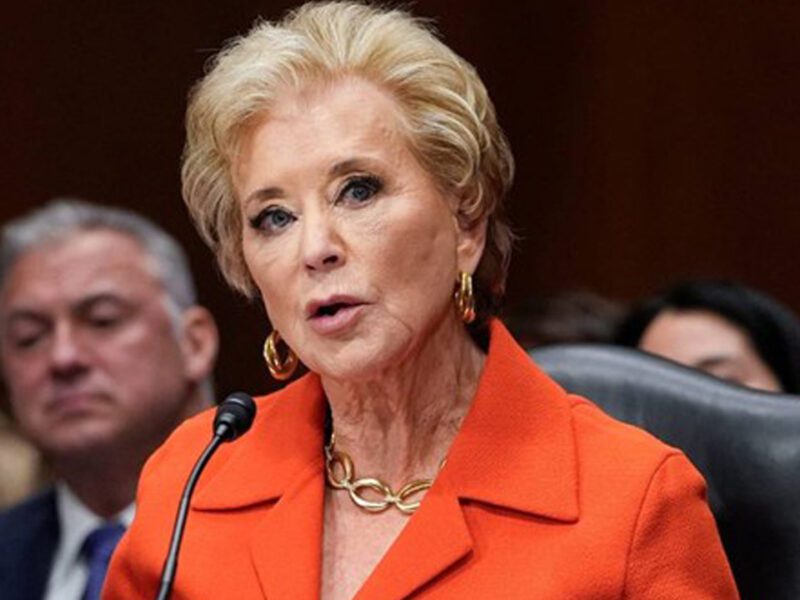
In Blow to School District, County Would Allow Unlimited Development Whether Or Not There Are Enough Schools
Flagler Live | March 21, 2022
The Flagler County Commission is considering ending a long-standing smart-growth rule: There would no longer have to be sufficient school capacity for new development to go forward.
Under a proposed revision of the county’s Comprehensive Plan, the blueprint that frames the county’s long-range development policies, the “school concurrency” requirement would be eliminated. The state no longer requires it, making it optional for counties to keep or discard. The plan unveiled only hours before a commission workshop today would discard it.
The proposal is still just that. Today’s workshop was designed to brief the County Commission on the work of the Northeast Florida Regional Council, which drafted the plan. The council is one of 10 such regional councils around the state, created by the Legislature to promote regional cooperation and problem solving. It gathers 26 municipalities and seven counties, including Flagler, and operates under the aegis of a 35-member board, including, from Flagler, county commissioners Dave Sullivan and Joe Mullins, and Bunnell Mayor Catherine Robinson.
So the draft by the regional council was itself just that–a draft that could have been amended or altered by the commission, if it so choose, to better fit Flagler County’s needs. Commissioners declined to do that, at least at this stage, saying it will get its chance at revisions once it goes to the county planning board and back to the County Commission. The revised plan must also be reviewed and green-lighted by the state Department of Economic Opportunity, which seldom makes objections.
But the proposed plan, and its last-minute unveiling, took not only some school board members by surprise, but a county commissioner as well.
Commissioner Andy Dance told fellow-commissioners that the plan that should go forward at this point should only include changes required by law. Anything optional should be preserved, for now, including the school concurrency requirement. “We’re going to be pursuing a complete overhaul of the comp plan that includes visioning,” Dance said. “So if it’s optional, it probably should stay in there so that the community becomes part of the process. Typically with comp plan updates of that magnitude, we have town halls, we have public input.” Dance was speaking from an efficiency perspective: sending a document with legally required changes will enable it to “fly through planning board and come back to us.” But once optional issues are removed, “it’s going to bog down the process moving forward.”
Margo Moehring, director of policy and planning at the regional council, had just finished her briefing. She stood at the lectern as Mullins dismissed Dance’s concerns. “You guys are the ones doing this,” he told Moehring. “Y’all know what we need to have happen. I certainly don’t want to micromanage it.” Mullins frequently misunderstands the role of county commissioners, as he appeared to today: the council’s job is done. The draft is now in local officials’ hands to shepherd through a public vetting as they choose. He wasn’t telling the council how to do its job. He was indicating that he was not interested in doing his–as did Commissioners Donald O’Brien (who did not say a word the entire meeting and seemed distracted), Sullivan, who raised a few questions about concurrency, and Commissioner Greg Hansen.
“We’re not saying we’re removing it forever. It’s just the advice of the council is get it out now and just give to the state in just what they have to see,” Hansen said.
“The school district wasn’t notified of the process of us even coming today with this removed, ” Dance said. “It’s going to compound and make the additional planning board session more complicated. It’s it’s going to bog it down because they’re going to be concerned about the element. And it just seems like to me we’re going to have this discussion anyway, later in the year. That’s all. You would have it better with a transparent process that has public input, different from just planning board and commission meetings. That’s all.”
“Well, we’ve got a consensus to move forward. So go ahead and move forward,” Mullins said, again dismissing Dance.
What he did not say was that earlier this month in an administrative level meeting between the county and the school district over ongoing negotiations about impact fees, Mullins had himself threatened to have concurrency removed from the comprehensive plan if the district did not budge on concessions the county was looking for. The county and the district have been at loggerhead over the issue, with the district wanting to raise impact fees and the county, taking the side of home builders, pushing the concessions from the district.
School Board member Colleen Conklin alluded to that threat when she addressed the commission in this afternoon’s 35-minute workshop.
“First, I was disappointed to see that this is even on your agenda, and the information wasn’t even shared until just this morning, a few hours ago,” Conklin said, before describing herself surprised at the removal of the concurrency issue. “But then again, maybe I shouldn’t have been,” she said. “And it was publicly stated in a meeting that if there wasn’t that cooperation with school impact fees, that will just blow up the ILA. Not appropriate . Not appropriate at all.” The ILA is the so-called interlocal agreement between the county and the school district on impact fees. The agreement calls for concurrency, in line with the comprehensive plan. By “blowing up” the agreement–presumably the threat Mullins made at that administrative meeting–would eliminate the need for concurrency. But first, the county must scrap concurrency from its comprehensive plan, which has precedence over the interlocal agreement.
That, in effect, is what was taking shape today: it had little to do with the routine comprehensive plan updates that counties and cities conduct from time to time–“update lite,” as County Development Director Adam Mengel put it at the beginning of the workshop–and a lot to do with some county commissioners making good on the threat to sever concurrency requirements.
“So it’s very transparent to me what is happening right now, and totally not appropriate,” Conklin said. She also sought to make a correction to the presentation that had just been made: contrary to the claim that St. Johns, Nassau, Clay and Baker counties removed the same language from their comprehensive plans, they still have it in their plans, Conklin said. “We look forward to working cooperatively, collaboratively with everyone, because it benefits all of us.” Conklin promised to speak further at this evening’s commission meeting, when commissioners are again expected to take up approval (or rejection) of the school district’s now-revised impact fee schedule.
The district had last year started that process by asking for a doubling of impact fees. The commission, which must approve the request by ordinance, rejected the plan. The district scaled it back considerably. But now the plan is hung up over what’s referred to as “proportionate fair share mitigation,” a technical phrase that refers to the manner in which developers pay their impact fees. Right now they pay the fees up front, even before a building is built. Developers are asking to pay the fees only as a home is being built instead–at the time permits are issued, in other words. The school board is resisting what would be yet another concession, because as it sees it, it needs its own funds to plan for schools before being slammed with students, and potentially overrun.
Conklin addressed the issue more sharply on her Facebook page earlier today, raising another issue of crucial concern to the district: “I have done my very best to be cordial, cooperative and professional about the topic of impact fees but THIS is what my mother would call – dirty pool,” she wrote. ” I have been in meetings where the removal of School Concurrency from our interlocal agreement and comp plan have been threatened along with support for the upcoming half-penny sales tax.”
Almost 10 years ago the district won voter approval for a half-penny sales surtax to pay for technology improvements in the district. Then-School Board member Andy Dance championed that tax and led the successful campaign for it. The tax is up for renewal this year. Conklin was now tying the commission’s politicking with impact fees to the sales surtax as well.
School Board member Janet McDonald also addressed the commission, but not critically. She asked for cooperation. “The county that you came here originally to live in is not the county we have right now. Certainly is not the county I moved into,” McDonald said. “We have to prepare for the future as positive and patterned growth comes in.”
Flagler-proposed-plan




